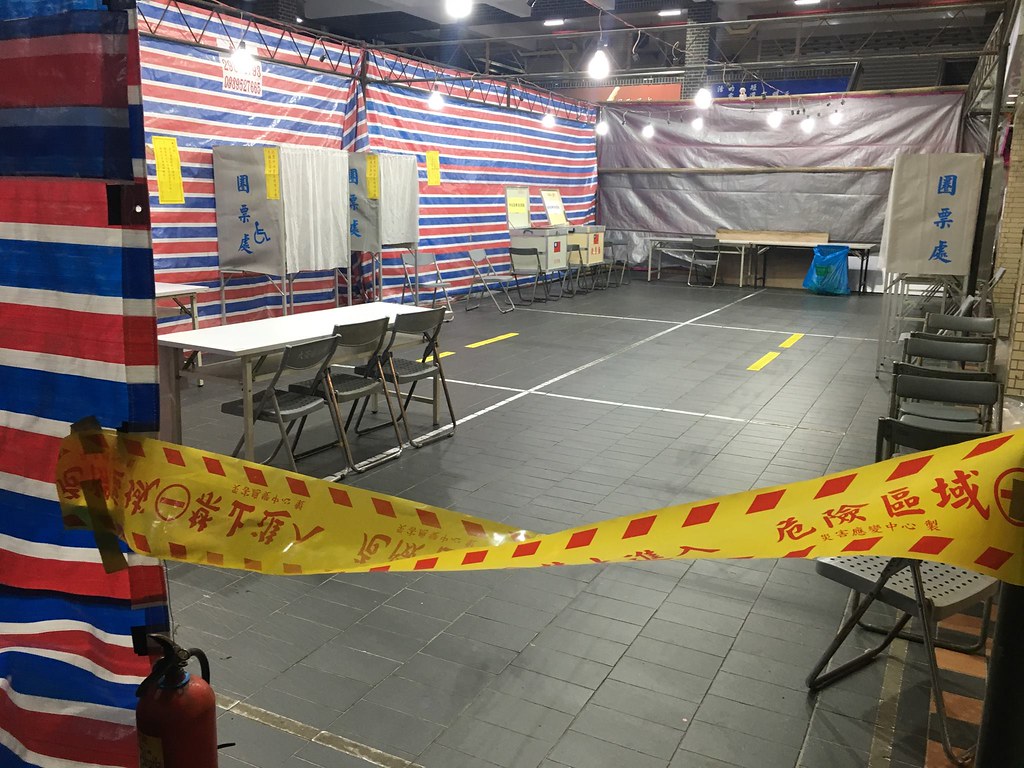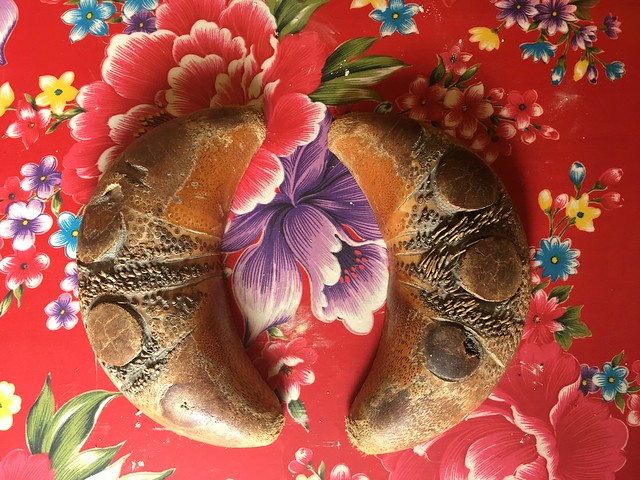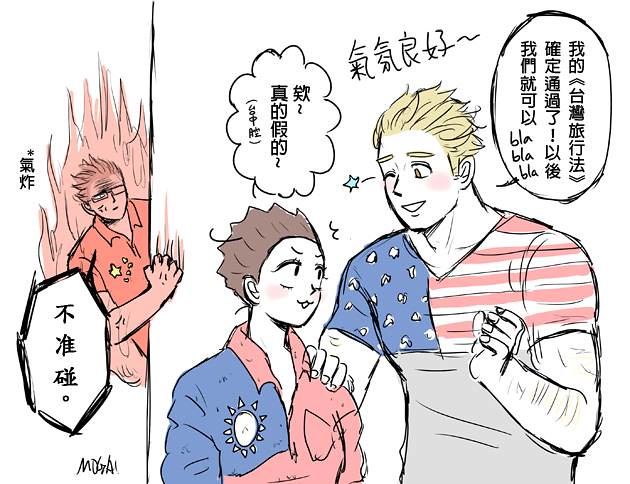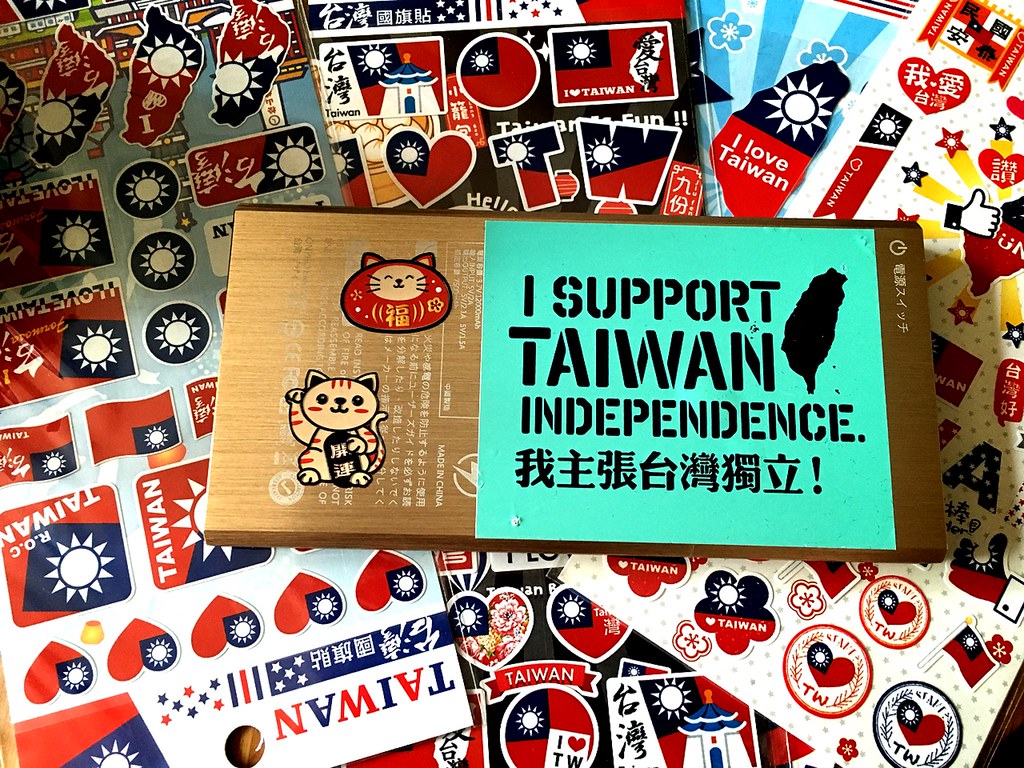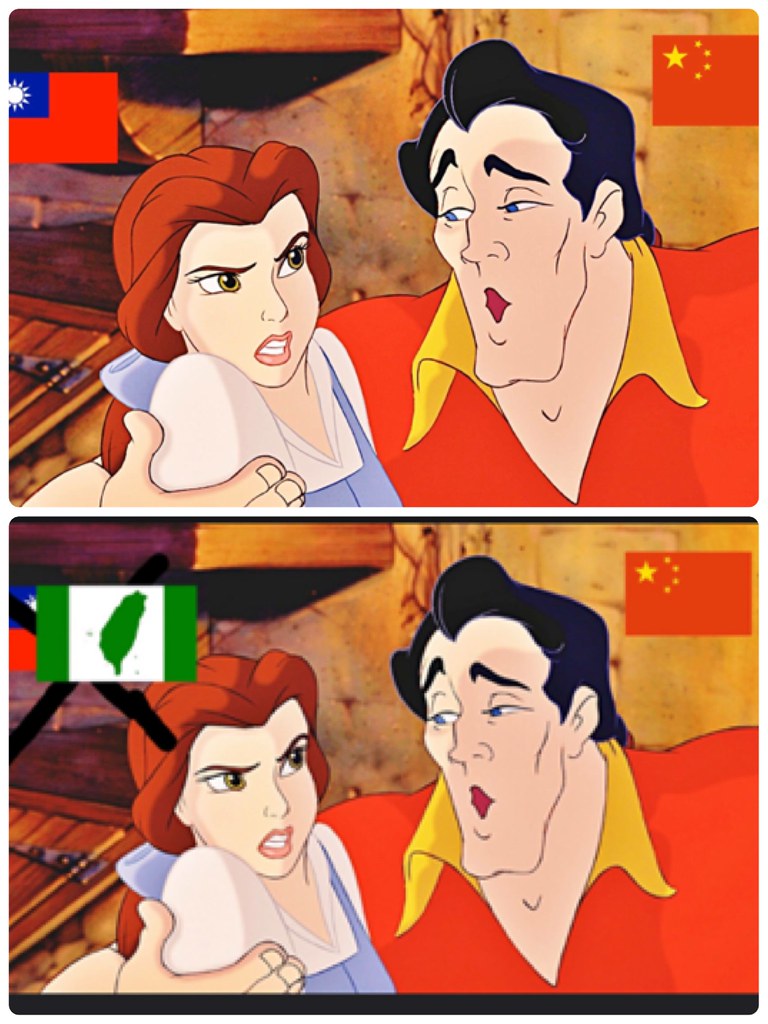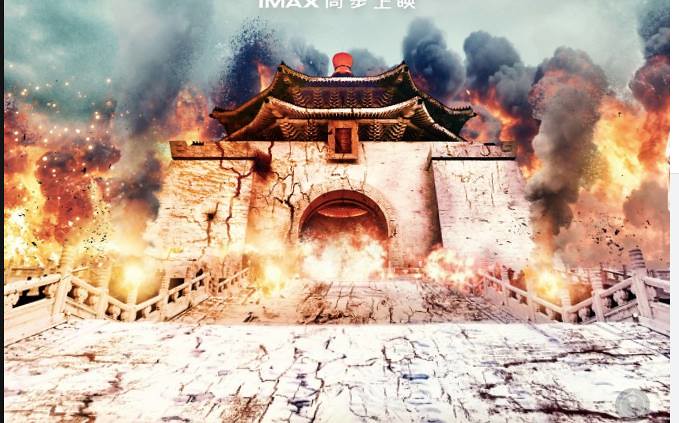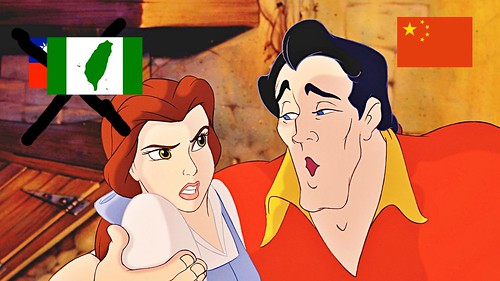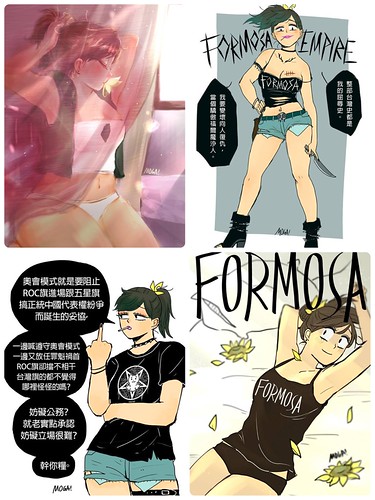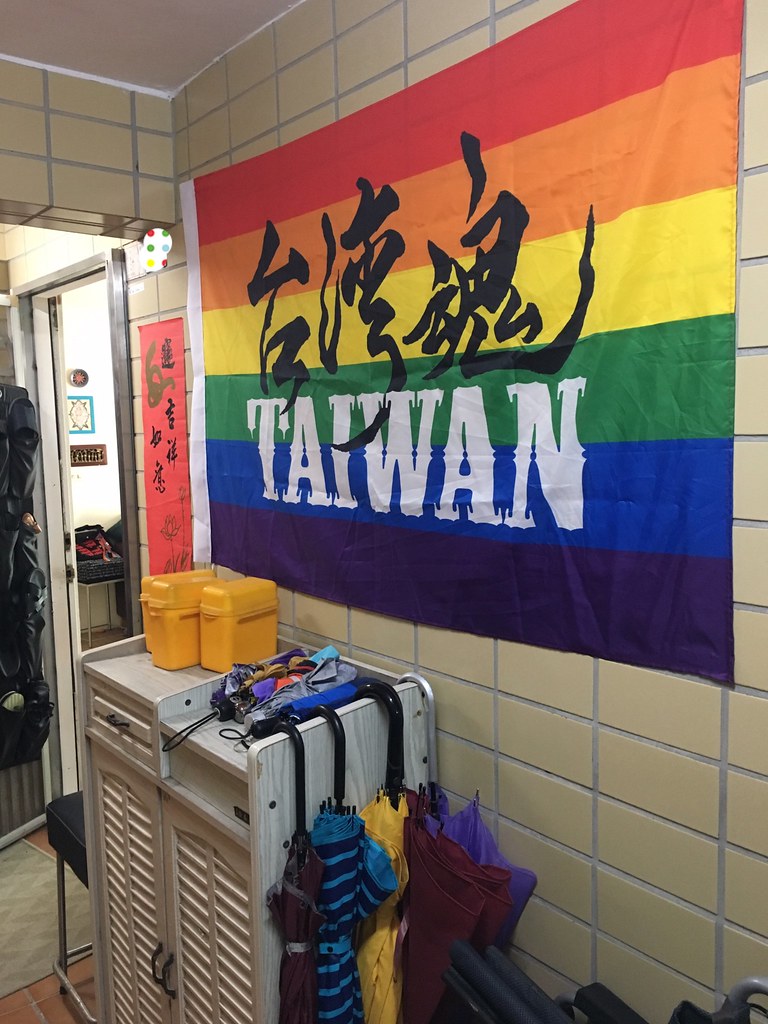 |
| We are all Taiwan souls |
I'm a little hungover this morning, so I got up late and put up this flag just to remind myself that the fight's not over.
I have less to say about the races so I'll talk about marriage equality. Honestly, I think that's the one we all cared about the most.
First, yes, despite the deliberately confusing wording of the referendums, we were a bit too early to the party for marriage equality in Taiwan. The old folks came out and voted, and they showed that the wrong side of history still holds sway here.
But let's remember a few things. We were early to the party, but what we heard last night wasn't the voice of eternal conservatism in Taiwan. What we heard is that the party is still on, it's just going to start later than expected.
Young people are more disenfranchised in Taiwan's voting system: they're broke, they can't vote absentee even though they're less likely to live where they are registered, they work long hours so it's hard to travel back. Some perhaps didn't vote because they knew they'd be harangued by their elders for voting the "wrong" (actually the right) way. It doesn't change the fact that the younger generation DOES think differently for the most part, and unlike views on things like fiscal policy, this isn't a view that grows more conservative with age. They got complacent perhaps, because all their friends are pro-equality too so it seemed like the country was more firmly on their side. They thought 10, 11 and 12 would be defeated, so it didn't matter if it was inconvenient to vote. But the old folks will die and the younger ones will do better.
Let's remember as well that the pro-equality side had far less funding - why aren't you guys donating, by the way? - and young people are too busy and broke to volunteer. You could see it in their materials: their brochures weren't as glossy or thick, or as great in number, because they didn't have the cash. Unlike the bigots, who could recruit housewives with nothing better to do, their supporters work long hours just to get by and so they couldn't get out and volunteer as much. But that doesn't mean supporters don't exist.
People might say "Taiwan is a conservative society" and I have to admit there's some truth to that. But it is not conservative across the board: older folks still hold a lot of cultural power, but the winds of change are blowing. They were blowing in the US in the 1960s, even though most people still opposed civil rights (the majority were against the Civil Rights Act when it passed). They were blowing in the 1970s and 80s, when most people thought the participants of the Kaohsiung Incident were ruffians and 'bad elements', because the KMT dictatorship portrayed them that way in the media. Now we know better. Both the US and Taiwan still have a long way to go, but we have come some distance.
And yes, some people were tricked. My student on Friday was talking about how a "separate law" could still be "equal", and I had to set him straight (he'd heard misinformation). A former student said the referendums were so confusing that they seemed to have been written by "an elementary-school student". A lot of people who theoretically believe in equality but are still coming to terms with this new world of LGBT acceptance thought the wording of #12 sounded tempting. A lot of people were misled to believe that the problem with sex education in schools is that it starts too young (it doesn't, by the way) - that's what the commercials said - and don't realize that the intention is to ban it from school altogether.
While the anti-gay referendums might still have gotten more votes than the pro-equality ones had the wording been clearer, I honestly doubt they would have passed. That's what the anti-gay Christians had to do to get votes: to deliberately confuse people. If Taiwan really agreed with them, they could have written three clear proposals. It says a lot that they didn't.
The fact that the bigots had to deliberately make the wording fuzzy and spread lies to get votes, that they had to pour so much money into their campaign, and that they had to move from trying to "portray LGBT people as morally degenerate" (to quote a friend) to "we support a separate law to protect LGBT rights and interests" shows that they had to pretend to care about equality to get all those votes. Taiwanese people did not vote "WE HATE GAYS" last night. The Christian jerks lost that battle. They voted "we're scared of change, so let's pick this thing that seems like equality so we don't feel too terrible. After all, aren't we still protecting LGBT rights if there's a separate law?"
(No, but I can see why some people were convinced that this was the case.)
Someone else I know pointed out that conservative forces in Taiwan have been studying US electoral politics, and I agree. The deep green conservatives who want global recognition for Taiwan got played with a bunch of needless 'culture war' garbage that has actually set back their goal. Marriage equality was one way to get Taiwan into the headlines, and now Taiwan looks bad. I hope they're happy. They pulled a Trump in Kaohsiung (Han Kuo-yu is not only terrifyingly right-wing populist, he can barely answer questions and never gives details, and beats people up for no reason at all). They're doing a really good job in getting us lefties to all hate each other for no goddamn reason.
The US voted right-wing in 2016 too, and those of us who are trying to bend the arc of history towards justice realized we weren't fighting hard enough, and we weren't fighting well enough. We realized that marching around with signs is only part of the equation, and we needed to start politicking (again to quote a friend) and stop shitting all over every incremental improvement that was not the total change we wanted. I think Taiwanese youth will realize this too, and stop thinking that only 100% moral purity will do, or that anything less than 100% victory is defeat - and it's time to start politicking.
We should have learned this in 2014, when the Sunflowers stopped CSSTA and effected a huge electoral change not because every one of their demands was met, but because they ended the occupation after a sufficient victory. Their slogan was 自己的國家,自己救 (it's your country, save it yourself) - and we should have learned from that and not just trusted politicians to do the right thing or for 10, 11 and 12 to fail.
Or we could have learned it during the Wild Strawberries, where they were broadly ignored in their time but have had a big influence on Taiwan in the 2010s. Or we could have learned this during the Kaohsiung Incident, which broadly failed in its day (many participants went to jail, some were tortured), but they kept fighting.
Culture wars work to get out the vote, and as I do suspect that the KMT cut a deal with churches to quash marriage equality for votes (I can't prove this; I just suspect it), which with the deep green conservatives, pushed the anti-equality initiatives over the top. But neither the US nor Taiwan is homogenously bigoted. We might be post-Sunflower in Taiwan now, but Taiwan is not only a 'conservative society'. Remember that it was the Christians - people who follow a Western religion - who spearheaded this. They got others to agree, but non-Christian Taiwanese were not leading the fight.
And it's ridiculous to let Christians define what it means to be Taiwanese. Taiwan is not a Christian nation. Even if you consider Taiwanese culture to be an outgrowth of Chinese culture (which I don't), Chinese culture was not particularly traditionally opposed to homosexuality. While things may have been different for everyday people, rulers often had gay lovers and nobody cared as long as they produced heirs. There's an entire opera - The Butterfly Lovers (梁祝) - in which a boy falls in love with a girl dressed like a boy, and is conflicted (in the end she's to be married to someone else and they both commit suicide.) In the opera, his confusion over his feelings is merely described; it is not condemned. Being anti-gay is not inherently Chinese (if you think Taiwan has Chinese heritage, which, again, I don't). It may be Neo-Confucian and Christian-tinged authoritarian (the Chiangs were Christian), but it is not "Chinese".
The 100,000+ people who have turned out for pro-equality events are Taiwanese too. The few million who did vote for equality are Taiwanese too. Those who got tricked into voting for 'a separate law' but are actually not bigoted are Taiwanese too. People say that ascribing certain 'Western' values to Taiwan makes white folks like me 'culturally imperialist', but I'm not the one doing it. I'm describing what they are doing, and they have just as much of a say in what is or is not 'Taiwanese' as the old conservatives.
I mean, when America sort-of voted for Trump, liberals didn't think "oh, I guess that means we don't have any say in what it means to be American". We re-evaluated what we thought we knew about our country, realized we needed a new strategy, and kept fighting, because we were and are just as American as anyone from Trump Country.
What's more, in the US once marriage equality was made law, it ceased to be a relevant issue. Just as with every other country in the world - and even in the US's own past with abolition, suffrage and civil rights - often popular opinion follows law rather than preceding it. That's not the typical order in Asia (generally things don't change here until popular opinion supports a change), but that doesn't mean it's impossible. In fact, I suspect in the years after May 2019 when some sort of same-sex unions become law, they will then become normalized. Then, the groundwork will be there for true equality.
And yes, a lot of young people also voted against equality, because they grew up in conservative families. Because Taiwan is more "filial piety"-oriented (well, Neo-Confucian obedience-oriented - Confucius never envisioned 'filial piety' this way) it will take longer, but more will break free as they grow, and the ones who do not will not be the definitive voice of the next generation.
So we need to support them - with our time, our advice from the battles we've fought in our own countries, and our money (DONATE, YOU GUYS) - so they can make this party happen for real. We need to engage with them and they need to figure out how to engage with their elders.
Let's remember as well that the DPP may be spineless, and they don't all support us, but they didn't want marriage equality to be decided by the electorate for just this reason. They knew how it'd turn out, and they knew what the more conservative wing of their base thought. So they may lack moral courage, but we do have allies among some of them. We can't make the mistake of thinking that electing them will fix everything again: it's your country, save it yourself.
The good news is that their conservative base is pro-Taiwan, and Taiwan stands for equality and human rights. I do believe that some of them can be convinced in the coming years, if we make the right arguments about marriage equality being good for the country's international profile, for Taiwan's economy, and for Taiwanese values, of which equality is a part.
Another bright spot as well is that the NPP won several city council seats, and Miao Poya, the first openly LGBT city councilor, was elected last night in my district. We do have allies. The old people don't get to define all of what it means to be Taiwanese. The Council of Grand Justices has already said their ruling stands.
That shows we've already pushed the conversation a little bit in the right direction. The "gays are degenerate and have AIDS!" argument no longer works here. And no matter what, there will be some form of same-sex partnerships in May. This is not a 100% victory, but it's a step. Once that happens, and people realized that AIDS doesn't start falling from the sky, then we can actually get this party started.
I'm here in my party dress and I have to believe it will start.
In other words, that flag above and the people who fly it are *just* as Taiwanese as any old bigot at the polls. And we've got one thing that most of Asia doesn't: actual democracy. China says "'Chinese' [by their definition] people are not ready for democracy", but although we don't like the results, and some outcomes seem straight-up stupid, you have to admit: people were engaged and talking about the races and referendums. People turned out to vote. They didn't vote the way wed've liked, but Taiwan can still prove that 'Chinese' [again, China's definition, not mine] can and have built a democracy. We only have to hope that it stands, because there are some huge tests coming.
Well. We are all Taiwan souls. Some of us were born into it, some of us are not actually Taiwanese but this is our home. I don't get any say in what is or is not "Taiwanese", but our liberal Taiwanese friends do. We need to support them. Now.
I am deeply disappointed in Taiwan today. I still love this country, but I don't like it very much right now. But this is my home and I may be crying and hungover, but I have to keep fighting for it.


